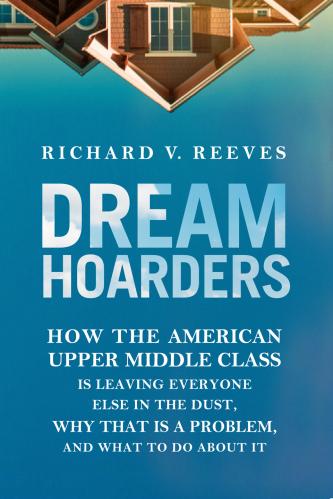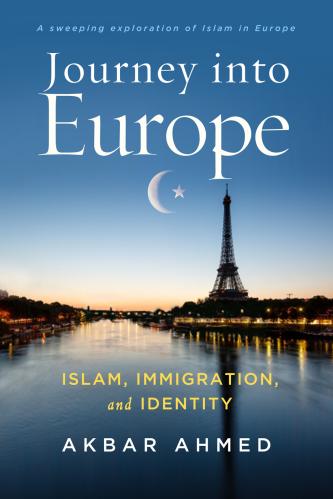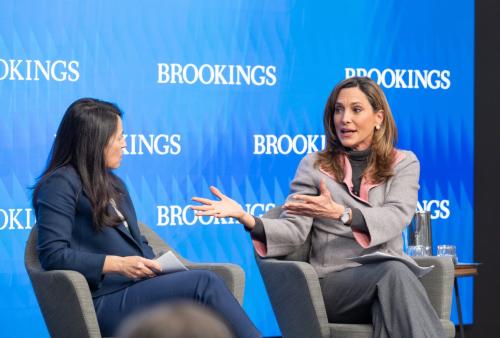Richard Reeves presented these remarks at The Economist’s Open Future Festival on September 15, 2018.
I am a new American. Along with 52 other people from 47 nations, I took the oath of allegiance on October 18th 2016, the very last day for voter registration in my home state of Maryland. As I am still a British citizen, I also voted in the Brexit referendum. So hey, it’s not my fault. Except that, as a fully-fledged member of the liberal elite, it is a bit: and maybe yours, too. The biggest problem facing liberal democracies is not a lack of economic growth but a lack of respect, since respect is the essential ingredient of a flourishing liberal society. Hierarchical, authoritarian societies rely above all on respect for the rules, for the order of things; but liberal, republican societies are founded on respect for each other, for our fellow citizens. Plenty of thinkers from Adam Smith to William Penn have stressed the importance of respect for liberty. But perhaps the greatest advocate was Aretha Franklin. R.E.S.P.E.C.T.
Respect is the glue for relational equality. We typically think about equality in terms of rights, as enshrined in law; or in terms of resources, expressed largely in dollars or pounds. But the basis for these kinds of equality is equality in terms of relations, which is sustained through mutual respect. Historian James Kloppenberg, in Toward Democracy – The Struggle for Self-Rule in European and American Thought, argues that a central premise of modern democracy is an “ethic of reciprocity” which he says means “treating all persons with respect and weighing well their aspirations and their ways of looking at the world.” In a society of equal respect, we can, according to Philip Pettit, “speak our minds, walk tall among our fellows, and look each other squarely in the eye.’ The capacity and willingness to look each other squarely in the eye demonstrates true equality. In an equal gaze is equal respect. This is why for most of U.S. history, a Black American who dared look a white person squarely in the eye could be beaten or worse for their ‘insolence,’ for daring to presume themselves equal to whites. Women in many places in the world even today are not expected to meet a man’s gaze on level terms, precisely because it would signal equal status.
Negative, ethnocentric populism is so poisonous not just because it undermines mutual respect, but because it specifically sets out to do so.
So to be clear, I am not arguing here for the restoration of some lost republic of respect. The definition of who qualified for respect has been a sexist and racist one. The demand for equal respect has been at the heart of the civil rights movement, women’s movement, lesbian and gay rights movement and progress on these fronts has been halting, but real nonetheless. Negative populism, of the kind promoted by Steve Bannon and others, threatens this progress. It is fueled not only by anger at the elites (and we deserve some of that), but by a profound lack of respect for people whose only failing is to depart from some nativist, racist ideal. Immigrants, women, people of color, those relying on welfare payments: demonized and disrespected in order to stoke the white voter base.
Negative, ethnocentric populism is so poisonous not just because it undermines mutual respect, but because it specifically sets out to do so. But the elite are to blame, too. Those of us in positions of power have paid too little respect to too many of our fellow citizens. We have not, in effect, looked them squarely in the eye. We have disrespected our fellow citizens in thought and word and deed. In our thought, with our self-serving embrace of meritocracy as a guiding philosophy. We have forgotten, if we ever knew, that the term meritocracy was coined 60 years ago by Michael Young, the British sociologist, in his book The Rise of the Meritocracy to describe not a utopia, but a dystopia. We are so used to seeing meritocracy as good thing that we have ignored its flaws. Meritocracy has been turned into a secular creed justifying rampant inequality. Those making good money can reassure themselves that it is because of own “merit,” the philosophical version of “Because I’m Worth It.”
The economic gap becomes an empathy gap, which becomes a respect gap.
The winners then look down on the losers, seeing not a broken ladder of opportunity or a broken labor market, but broken people, making bad choices. In a meritocracy, the danger is that the successful do not just think they are better off, but that they are better. The economic gap becomes an empathy gap, which becomes a respect gap. The second demonstration of elite disrespect has been through words. Two years ago, Hillary Clinton described some of President Trump’s supporters as “deplorables.” The phrase was taken out of context before being bounced around every social media echo chamber; but today Mr. Bannon’s followers wear “deplorable” as a badge of honor. And ten years ago Barack Obama worried about folks who “cling to guns or religion”. These are just the famous examples. But they confirmed a sense among many of those who are struggling, especially in this case the white working class and middle class, that we, the professional elite, look at them with condescension or even contempt – that we look down on them. When we “look down on” or “down our nose” at somebody, we are by definition not looking them squarely in the eye.
The lack of respect shown by the elite to fellow struggling citizens has helped to sow the seeds of our current predicament.
Consider phrases like “trailer trash,” “flyover state,” “redneck,” “white trash”: words of disdain. Disdain is a form of disrespect. Last but not least, the elite has shown disrespect in our deeds, or perhaps lack of them, specifically our carelessness in terms of policy. We have complacently made the economic arguments for free trade, automation and immigration on the grounds that on net, and in the long run, these are good for the economy. And so they are. But this means that right now, some people are losing out. Yet the policies that would offer really substantial help to those most affected by change rarely made it to the top of the political agenda. Bill Clinton did too little to invest in workers even as he pursued free trade and sound money. Tony Blair did too little to manage immigration from other EU countries. And to be clear, at the time, I was emphatically on their side. But they were wrong, and so was I. Until the recent tax bill, for every $1 the U.S. government was spending on Trade Adjustment Assistance for workers, it was spending almost $25 on tax subsidies to the endowments of elite colleges. The lack of respect shown by the elite to fellow struggling citizens has helped to sow the seeds of our current predicament. This disrespect is now being repaid, with interest. In the U.S., Donald Trump channeled the anger of many middle and working class Americans against the “so-called experts.” In the U.K., Michael Gove, one of the brainiest and wonkiest politicians of his generation, won applause during the Brexit referendum for saying “I think that the people of this country have had enough of experts.” There is an anti-establishment impulse in the current populist surge. Much of this is dangerous and wrong, and we should call it out. But some of it is grounded in some legitimate grievances, and we should concede as much, and respond with respect. There are many steps that need to be taken to revive liberal societies, many of which have been articulated on these pages. But we need to start by building a foundation of mutual respect, by dethroning the false idol of meritocracy; minding our words and our tone; and by aggressively pursuing policies that do not benefit us – indeed which may ask of us some sacrifice – but which do benefit those unluckier than us. We can begin now, where the late Gerry Cohen said social justice was to be found, “in the thick of daily life.” Let us start by looking each other squarely in the eye.
The Brookings Institution is committed to quality, independence, and impact.
We are supported by a diverse array of funders. In line with our values and policies, each Brookings publication represents the sole views of its author(s).






Commentary
With respect: how liberal societies flourish
February 12, 2019